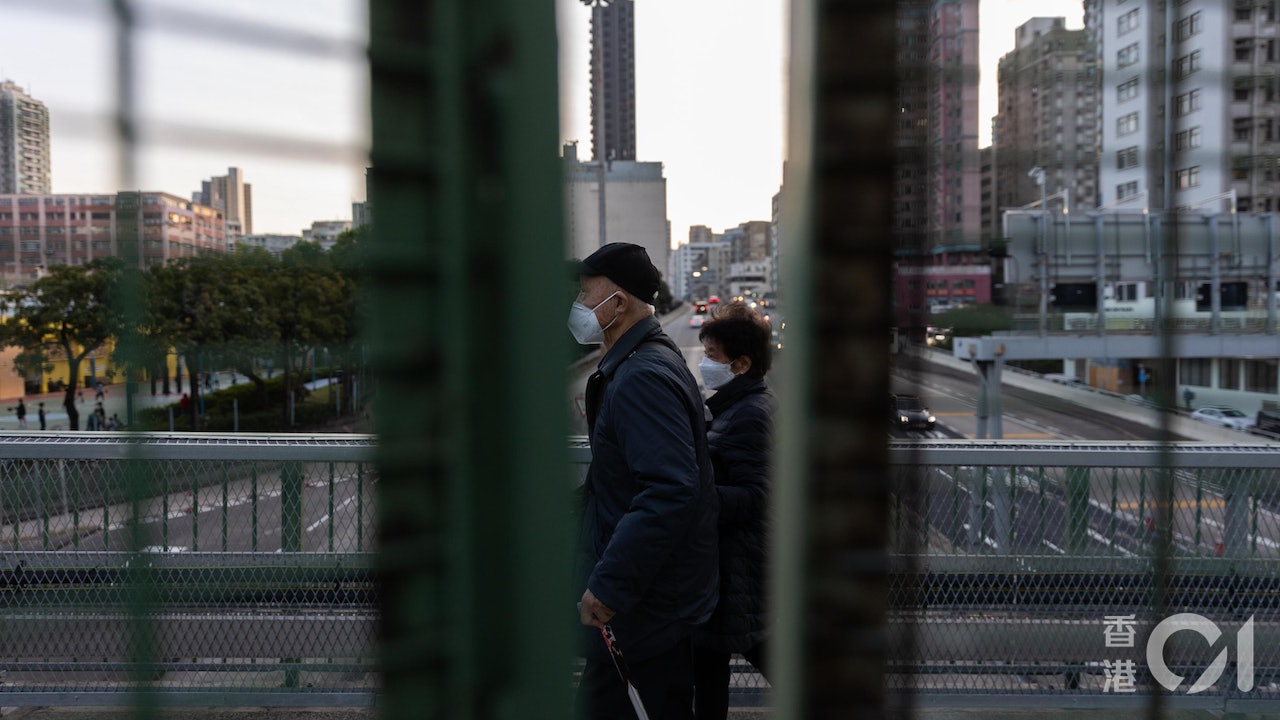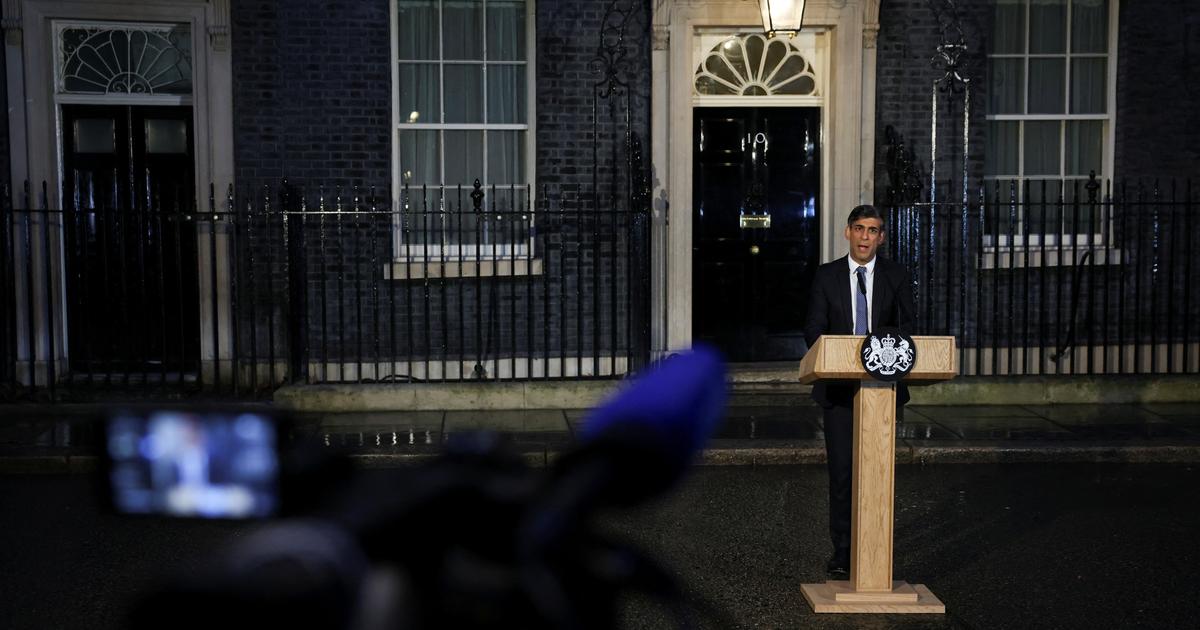Terrible figures - according to the statistics of "Hong Kong 01", last year, one fifth of the homicides involved caregivers. However, in the series of interviews with "Hong Kong 01" "Save the Caregivers", Executive Council member Lin Ching-choi felt helpless. It is mentioned that Hong Kong must wait for a "tipping point" (trigger point) before it can promote a major change.
Can caregivers, who are under endless stress day in and day out, really wait?
We interviewed several members of the Legislative Council, but they unanimously pointed out that the problem has reached a critical point or even exploded, and it is urgent for the government to take the lead in taking action.
Because the scope of caregiver issues is far wider than everyone imagines, and you are a caregiver by your side or even yourself at any time.
According to the estimates of the Hong Kong Council of Social Service, there are currently about 1.3 million caregivers in Hong Kong, accounting for one-fifth of the total Hong Kong population.
When the support and supporting facilities for caregivers are insufficient, the caregivers lack a bit of breathing space and can only carry the burden on their shoulders silently.
In the boundless sea of suffering, a harsh criticism, an indifferent look in the eyes, and a helping hand that is not extended in time may eventually become the last straw that breaks the camel's back.
Scenes of bloody "lessons from blood" have sounded the alarm to the public - "It is time to save the caregivers".
"Save the Caregivers" Series Report
(Part 7)
Di Zhiyuan: The numbers are shocking
There were 30 homicides in Hong Kong last year, 6 of which, or 1 in 5 cases, involved caregivers of patients. The number is appalling.
Di Zhiyuan, a member of the Legislative Council representing the social welfare sector, said that from time to time he heard that caregivers acted stupidly due to stress, which led to family tragedies. Such extreme examples have such a large proportion, which proves that the stress and heavy burden of caregivers are shocking phenomena in the public, reflecting that the phenomenon of heavy stress faced by caregivers is common and very serious.
Di Zhiyuan, a member of the Legislative Council of the social welfare sector, believes that the longevity of Hong Kong people may be one of the factors leading to the tragedy.
(File photo/photo by Liang Pengwei)
According to the statistics of the United Nations Development Program in 2019, the average life expectancy of Hong Kong people is 84.9 years. Di Zhiyuan believes that the longevity of Hong Kong people may be one of the factors that lead to the tragedy. But if the health is poor, longevity is a kind of pain.” He explained that as a Chinese society in Hong Kong, the responsibility and burden of caring for the elderly and the next generation usually falls on family members, causing “quite a heavy burden” burden".
Coupled with the serious aging population in Hong Kong, the social support for the care of the elderly is in short supply and out of touch. Di Zhiyuan said: "We all hope that the elderly can get along with their family members, and the family members can take care of them (elderly). The government provides Supporting families to achieve aging at home; however, more and more families need support, and government services have not improved over time, many families do not receive enough support, and this is what happens... Everyone is very stressed and troubled problem."
Caregiver support is mostly experimental and insufficient
Di Zhiyuan questioned the government’s insufficient financial support for caregivers. He pointed out that only 10,000 people benefited from the carer allowance for the elderly and the disabled under the “Care Fund”, but there are at least 500,000 caregivers in the society. There is a gap between supply and demand. A big gap.
Although there are support services for caregivers in the market, most of them are affiliated with elderly homes, etc., and the support for caregivers is still mostly experimental, and there are insufficient home care services, food supply, medical services, and emotional care for caregivers: " For example, I have been taking care of an elderly person 24 hours a day for many years, he (the caregiver) may be under a lot of pressure, can there be some space to put the careee in some better service (center), so that I can shake off Go out and do what you like to do, learn about hobbies, and even have a short time to travel, so that they have time to adjust their lives."
The psychological stress of caregivers has been described as an "invisible disease" of society, and Di Zhiyuan also noticed that society's concept and understanding of caregivers is insufficient.
Some people think: "It is only natural for you to take care of your family as a child, and you are responsible for it yourself!" Di Zhiyuan, a member of the Legislative Council of the social welfare
The general public seems to have trouble understanding the plight and powerlessness of caregivers in real life.
Di Zhiyuan suggested that the government strengthen publicity for caregivers in the community and establish a good community mutual aid network. He also called on the public to have empathy for both caregivers and care recipients, and not to be stingy in helping them when appropriate.
He concluded that to solve the problems of caregivers, we must rely on the support from the family, the government, and the community in order to be more specific and comprehensive.
Di Zhiyuan denounces: the government's policy of lack of empathy is "lips but not reality"
Frozen three feet does not happen overnight. Hong Kong was on the way to an aging society ten years ago. Members at that time urged the government to plan as soon as possible. However, these tragedies seemed to prove the loopholes in the government’s safety net planning.
Di Zhiyuan said frankly that "the government does not have enough empathy."
The reporter asked whether the society is still waiting for a flashpoint?
Di Zhiyuan retorted that all kinds of tragedies have sent a clear message to the government.
Do you want some explosive points to inspire the government?
I think that's enough of the tragedy of many families.
Every time such tragedies occur, the whole society is very sad and asks: What has the government done?
, Why don't the government do more?
This information is very clear.
Di Zhiyuan
Li Shirong believes that the current social support for caregivers is insufficient.
(File photo/photo by Zhang Haowei)
Can the caregiver bear it all alone?
No way to reverse the attitude of the government?
Li Shirong, a member of the DAB Legislative Council who once advocated the "caregiver-oriented" policy and proposed a motion debate in the parliament, pointed out that one-fifth of the homicides involved patient caregivers, reflecting that the severity of the incident has exceeded the critical point, and even " Instant Pot".
Everyone thinks that nothing is nothing; if something comes up, maybe everyone is in a bad mood for a few days, and then ignore it... Different things happen in Hong Kong every day. Is there really someone who is dedicated to researching and promoting this? What about the policy?
It is indeed impossible to see.
Li Shirong, Member of the Legislative Council of the Democratic Alliance for the Betterment of Hong Kong
Caregivers are like working hard under the Lion Rock
Li Shirong said that many caregivers have been troubled by financial pressure for a long time: "The caregivers are actually sacrificing to go out to get jobs and income (opportunities) to take care of other people." As for the approval mechanism of the "Care Fund", only 1 Tens of thousands of caregivers benefit from caregiver subsidies. Li Shirong has some reservations about this: "I almost believe that caregivers are paying more for society." He believes that the "public welfare fund" is the government's gratitude to the elderly for "contributing to Hong Kong, "Working hard under the Lion Rock" feedback, but he emphasized that caregivers have also contributed to Hong Kong: "Reducing the number of socially arranged residential care homes for the elderly may not go to (residential care homes) because some people have caregivers, so (waiting Time) is short, but it is actually a sacrifice.”
A caregiver shared with him that every time he accompanied the care receiver to the hospital for follow-up visits, the expenses such as transportation, food, consultation fees, and miscellaneous expenses were nearly 1,000 yuan.
However, the government ignores the financial support needs of most caregivers on the grounds of overlapping public funds.
The psychological pressure of the caregivers cannot be ignored. Li Shirong described the responsibility of the caregivers as "the mother must breastfeed on time". They need to wait regularly, and even temporarily take the care receivers to the hospital for follow-up visits and take care of them. There is no room for negligence in the process. Psychological pressure also follows.
Li Shirong: The government does not pay attention to caregivers, or is it the final outcome?
Many people resolutely give up their job opportunities to become full-time caregivers, losing their source of income, and the government only provides caregivers with a subsidy of 3,000 yuan. In this era of expensive things, they have to save money.
When asked, does this mean that the government's policy is not forward-looking enough, and it looks on the sidelines about the plight of caregivers?
Li Shirong said bluntly: "They (the government) may not be without foresight. I believe the government is so wise. But today, I can boldly say that for the time being, I can't see the government paying attention to caregivers... The government is actually very clear. What needs does the caregiver have?"
He believes that when the government does not identify caregivers and does not provide them with a clear identity, private organizations will certainly not value caregivers. What is a caregiver?", "I have two children at home, so am I considered a caregiver? Am I (can) be on par with those caregivers?" "He believes that the core of the problem is that the government does not value caregivers at all. Mentality, and they have not fully grasped their mentality.
In the final analysis, I think the core problem of the government, first, is that it does not pay attention to caregivers; second, it has not fully grasped the mentality of caregivers.
The most important thing is that the government must first identify (caregivers), and the society will first recognize them.
No matter what you do, those people (caregivers) will be very disappointed
Scattered support services The government has no intention to reach out to caregivers
Li Shirong criticized that the government's service support for caregivers is scattered in different social welfare institutions. If caregivers need different supports at the same time, it is very complicated. He hopes that the government will set up special caregiver service centers in 18 districts to integrate support services and provide psychological counseling , training courses, clinical practice, case division, and respite services, etc.
He also pointed out that the government has the information of the care recipients, and the authorities have the ability to further identify the caregivers and provide them with appropriate services. However, he said frankly: "The government does not seem to have the number of (caregivers) and has not gone further. Some."
Li Shirong advocated the introduction of a "caregiver pass" to reduce the economic and emotional pressure of "unsung heroes" silently and alone.
(Photo by DAB)
Li Shirong proposed to launch a "caregiver pass", which provides authentication, recording, identification and reading functions. and service agencies for support.
The Legislative Council's Subcommittee on Reforming Poverty Alleviation Policies and Strategies discusses the difficulty of getting a car and simple public housing. The picture shows Jiang Yuhuan.
(File photo/Photo by Zhang Haowei)
Two councilors analyzed the lack of local support for caregivers from a third-party perspective. Another councilor, Jiang Yuhuan from the electoral committee sector, spoke from the perspective of someone who has experienced it. She also shared a fresh and hot case of seeking help, highlighting the caregivers helpless.
Jiang Yuhuan's own experience: Caregivers suffer from a great sense of powerlessness
She recalled the experience of helping to take care of her father who was suffering from cancer in the past. A friend told her that she was exhausted during the ten years of taking care of her father. She sighed, "I am no longer the one who takes care of him (father) the most." She He also pointed out that the patient's condition may go from good to bad, and the ups and downs of the medical report index will affect the nerves like riding a mountain. "It is conceivable that the person feels powerless."
On the day before the visit, Jiang Yuhuan just received a man asking for help, saying that his 90-year-old mother who was disabled had just been discharged from the hospital earlier. The man cleaned his mother’s body. When he saw the bloody pressure sore wound, the man couldn’t help shedding tears.
Later, the man took his mother to the pier for a walk. At this time, the mother silently said to the man, "You pushed me into the sea." Jiang Yuhuan said excitedly, "Can you (the government) think about it? In fact, a family, as long as it has one. This problem, in fact, everyone is under a lot of pressure. The mother also feels a lot of pressure, and feels that she has put a lot of pressure on her son, and she can tell her son, "You pushed me into the sea."
Pandemic sparks caregiver problems
"We will meet each other late at night, and there are no educated people (citizens) in Hong Kong."
The epidemic has further brought caregivers’ problems to the surface. She explained that in the past three years, many homes for the disabled in Hong Kong have been closed for more than 200 days a year due to the epidemic; Disabled and mentally handicapped people are forced to stay at home. In addition, Hong Kong homes take care of the elderly with dementia in a "bundled" way, treating the elderly like wild animals, which makes family members reluctant to send the elderly to residential care homes for the elderly, which in turn increases the workload of caregivers. In addition, the government has not conducted public education.
All these make the caregivers have no breathing room, lose their original life style, and even go from bad to worse.
At the Welfare Affairs Committee, she criticized Hong Kong's current support for caregivers as extremely backward, as in the "wild age", and described the scattered services as "sprinkling salt and pepper into the sea, and it is useless." But for In the past year, among the 29 local homicides, 5 cases involved caregivers. Jiang Yuhuan bluntly said that she was not surprised or surprised, because the society has not provided targeted services for caregivers for many years.
The Secretary for Labor and Welfare, Sun Yuhan, said earlier that the Social Welfare Department will launch a three-year publicity service for caregivers, including adding a hotline for caregivers, but can the helpline relieve the pressure on caregivers in an instant?
Jiang Yuhuan believes that it depends on whether the government has clearly defined the work content of the hotline: "If you call purely for condolences, it will be useless, or if you have to wait two weeks to provide services, you will die."
She suggested that hotline services should also include services such as emergency emotional support, medical assistance, temporary care, and financial subsidies.
She is more concerned about the staffing of the hotline and the number of people on duty: "Frankly speaking, if you get two or three, it's better not to open it. We don't want formal things, but practical help. caregiver".
In addition, she suggested that the government should set up "community centers for caregivers" in the region to provide breathing space for caregivers, and at the same time allocate more resources to frontline social welfare organizations to strengthen training for social workers and caregivers.
In the past, the government has dealt with various issues, including housing, (the government said) was tightened by the Housing Authority and the Urban Renewal Bureau, or the elderly policy, children... I understand that there will be a Tongleju incident. We outsourced to an NGO, so we felt done.
The money has been spent, and a lot has been spent, but if you ask me whether I can really do it, whether I can go to the pain point, and whether it can be implemented, I think it is not enough... The money has gone, there is no supervision, no effect... If the caregiver (problem) is still purely about money, let NGO do it, if it is, then there will be no problem in the morning.
Election Committee Legislative Council Member Kong Yuk-wan
Jiang Yuhuan advocated that the government formulate the "Career Act" within two years. She believes that the law is equivalent to setting a clear direction for the development of caregiver policies, providing caregivers with the most basic protection, and the outside world can also foresee The future direction of social policy: "Without such a thing (the "Caregiver Act"), there will be no axis. If you have free time, you will do it, and if you have free time, you will not do it. How about your words?
With a legal basis, you will know that (protecting caregivers) is inevitable and the most basic requirement.
"
She also mentioned that some countries have set up special caregiver policy steering groups: "There are special officials in charge, and that (official) is responsible. Do we have one in Hong Kong? No, it will always be a social welfare issue." Well, Social Welfare will die if you do this.”
She also urged the government to collect statistics on caregivers as soon as possible to understand their exact needs so that support services can be targeted: "If we want to help some people, we don't even know who they are, and we don't even know what their needs are. , then the whole policy is useless, all the measures and policies are in vain!"
Can you estimate it?
The worst thing about the government is that it doesn’t have statistics. These are real statistics, not population statistics. They are done every five or ten years... You must have statistics to know how many people are in the audience and who they are Who, if there is a need, we can prescribe the right medicine first... There are many fundamental problems in Hong Kong in the past, and we have not targeted the medicine. We estimate what they need, and the estimation has not changed for more than 20 years. Is there a society that will estimate it?
Election Committee Legislative Council Member Kong Yuk-wan
The caregivers may be ordinary or ordinary, but there is always one who silently contributes in the corner.
But they are by no means mediocre. They give up their unfettered life, and they may stand up for the care recipients countless nights, push wheelchairs through the streets to accompany the doctor, and humbly beg in the street market for a catty of vegetables to be cheaper for a few cents in order to save money... ⋯
They never expect to be the focus, but whether the society can bring a little light to their lives, whether it is financial support, emotional counseling, or the government's affirmation of their efforts, I believe it can illuminate those who are determined but helpless. Helping the caregivers and the caretakers to live in peace.
Hong Kong, which claims to be Asia's world city, efficient and flexible, can only quickly respond to the silent cries of caregivers?
How to bring a piece of driftwood to the caregivers, not only so that they can sustain themselves, but also so that the caregivers and the group of caregivers can live with dignity and peace of mind?
Save the caregivers・Special page|Who can support them in the darkness that the international metropolis dare not look directly at?
A 70-year-old woman takes care of her 86-year-old demented husband and how to sleep peacefully on the verge of collapse|Save the caregiver・1Save the caregiver・2|The good man suffers from cognitive impairment and becomes grumpy. The 80-year-old wife seeks breathing space and saves the caregiver・3|Social worker Call for a list of actions before despair. Stop, stop, and re-see the choice to save the caregivers. 4|Lin Zhengcai: Tragedy is not enough to promote policy changes to save the caregivers. 5|Dialogue with Lin Zhengcai——Who will take care of the caregivers?
Rescue the caregivers・6|Family suddenly immigrated, widows and elderly mothers failed to find support several times









